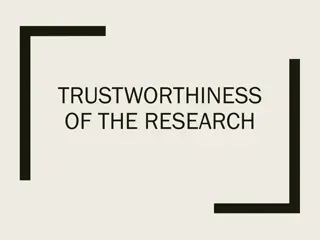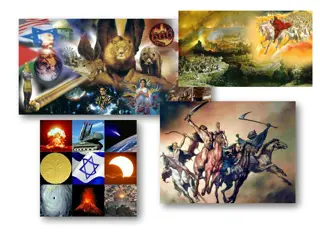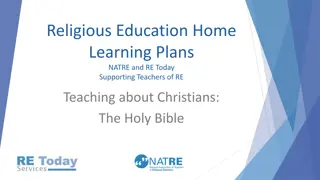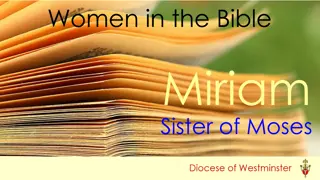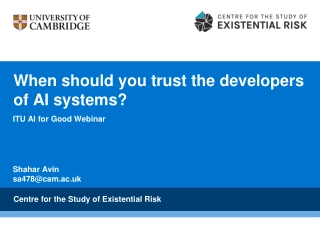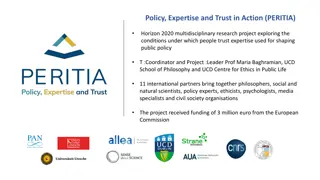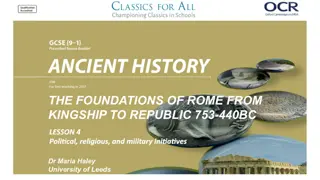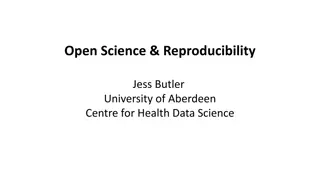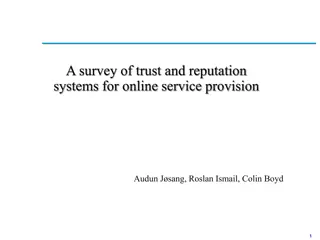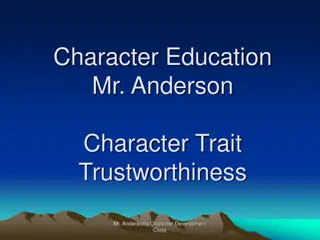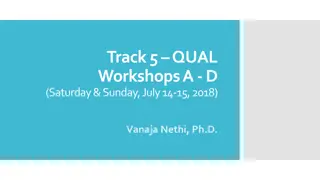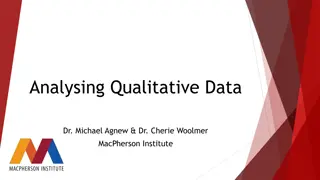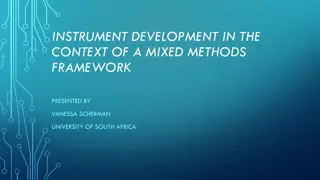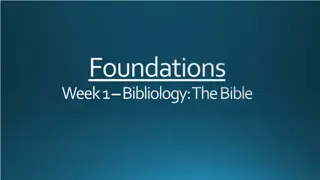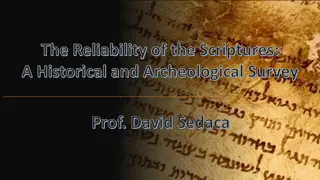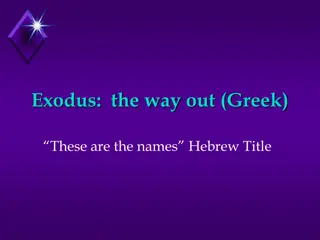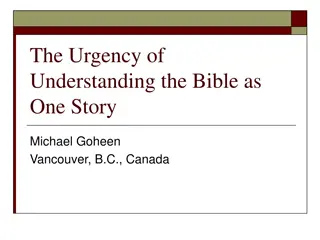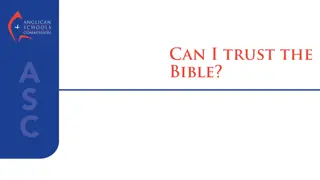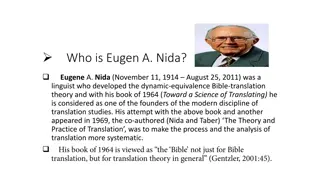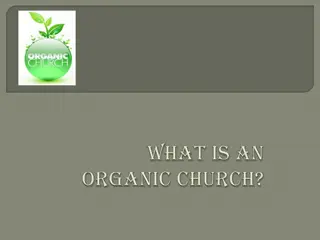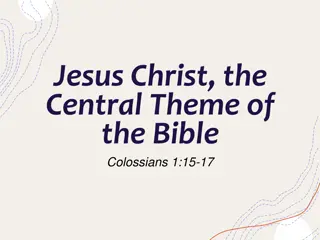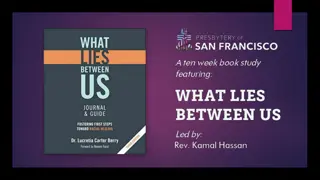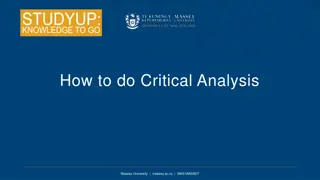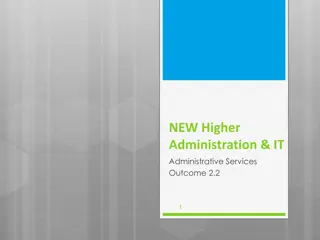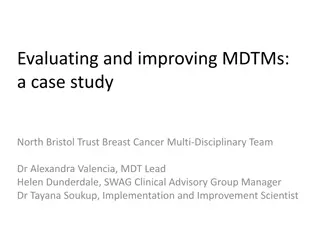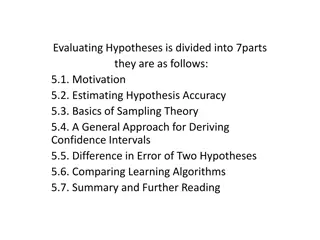Evaluating the Trustworthiness of the Bible
The accusation of the Bible being altered or incomplete challenges its credibility, portraying it as mere superstition. Skeptics question its authenticity, pointing to historical alterations. Criteria of canonicity inquire into the book's origins, message, and acceptance by the people of God. Early church leaders viewed the Bible as a living, transformative force indicative of divine inspiration.
Download Presentation

Please find below an Image/Link to download the presentation.
The content on the website is provided AS IS for your information and personal use only. It may not be sold, licensed, or shared on other websites without obtaining consent from the author. Download presentation by click this link. If you encounter any issues during the download, it is possible that the publisher has removed the file from their server.
E N D
Presentation Transcript
(The accusation) you cant or should not trust the Bible because it has been altered in some fashion and or is incomplete.
[The Bible] becomes nothing more than superstitious insights into archaic myths and fables. Historically helpful perhaps, but hardly inspired or inerrant. That is the story that the world is telling; a gripping conspiracy full of intrigue, subterfuge, secret councils and villains, and told in official-sounding documentaries by official-sounding professors. - Parkway Church Geoff Ashley
Skeptic Some skeptics will lean into the idea that the text was altered early on as a form of control whether political or theological
Was the book written by a prophet of God? If it was written by a spokesman of God, then it was the Word of God. Was the book confirmed by acts of God? Often, miracles separated true prophets from false ones. Examples of true prophets: Moses, Elijah, and Jesus. Miracles, by definition, are acts of God to confirm the Word of God given through a prophet
of God to the people of God. They were (and are!) signs that substantiated God s message. substantiated God s message. Did its message tell the truth about God? Church fathers maintained this policy: If in doubt, throw it out. This policy enhanced the validity of their discernment of the canonical books. Does it come with the power of God?
The early church leaders believed the Word of God was alive and active (as it remains today!), and thus would be a transforming force for edification and evangelism. In other words, if the message of a book did not have the power to change a person, then God was apparently not behind its message.
Was it accepted by the people of God? When a book was received, collected, read, and used by the people of God, it was regarded as canonical.
inerrant Or without error
Such skeptics love to talk data. They will say things like: 1. We don t have any of the original manuscripts (called autographs ) of the Bible or any individual book of the Bible. In fact, we almost certainly don t have any copies of copies--or even the copies of copies of copies.
Such skeptics love to talk data. They will say things like: 2. No two manuscripts match exactly, and the closest two manuscripts to each other have at least 6 differences per chapter.
Such skeptics love to talk data. They will say things like: 3. We don t have any early copies of entire books (since the earliest manuscripts are all fragmentary).
Such skeptics love to talk data. They will say things like: 4. There are around 400,000 discrepancies ( variants ) in our existing copies; meaning, there are almost three variants for every word in the New Testament.
First: It reminds us of the painstaking process it took for the Bible to be shared.
First: It reminds us of the painstaking process it took for the Bible to be shared. Second: It allows us to engage in Textual Criticism.
If everything was perfectly uniform that would bring into question its validity and authenticity.
Make sure the grain is harvested before the end of the week.
Copy A: Make sure the grain is harvested before the end of the weak. (notice the wrong spelling of the word week )
Copy B: make sure the grain is harvested before the end of the week. (notice that the copyist forgot to capitalize the letter m in the word make )
Copy C: Make sure the grain is harvested before the end of the week. (no variants)
Copy D: Make sure the grain is harvested before end of the week. (notice the word the is missing from before the word end )
Do you believe in the Sovereignty and Providence of God?
Do you believe in the Sovereignty and Providence of God? [Sovereignty is that] God is the all powerful God who has the right and authority to accomplish the things that He wills.
2 Timothy 3:16 All scripture is God-breathed
John 17:17 Sanctify them, or set my followers apart in the truth, your word is truth.
Mark 13:31 Heaven and Earth will pass away, but my words will last forever.
Matthew 4:4 It is written. Man shall not live on bread alone but by every word that comes from the mouth of God.
John 20:30-31 Now Jesus did many other signs in the presence of the disciples, which are not written in this book
John 20:30-31 but these are written so that you may believe Jesus is the Christ, the son of God
John 20:30-31 that by believing you may have life, this is eternal life, in his name!
Gods Sovereignty + Gods Sustenance = Security of His Scriptures.
Revelations 22:18 I warn everyone who hears the prophecy of this book, if anyone adds to them, God will add to him the plagues described in this book. And if anyone takes away from
Revelations 22:18 the words of the book of this prophecy, God will take away his share in the tree of Life and in the holy city which are described in this book.


